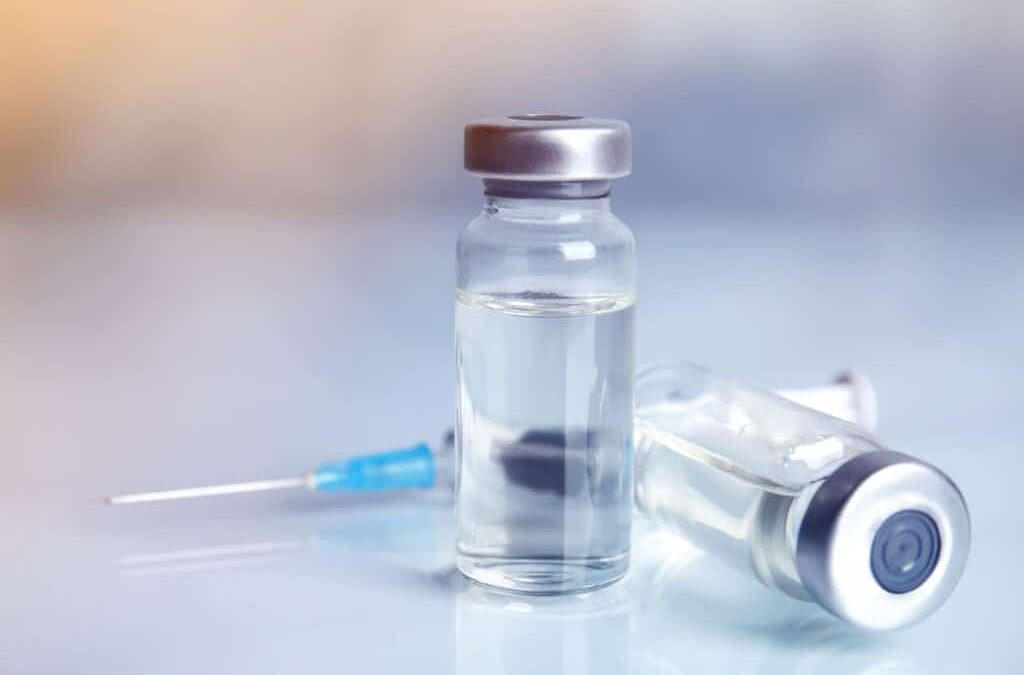The key terms of an updated draft covid IP waiver have been released by the WTO. The draft includes terms intended to alleviate concerns of developed countries. However it will do little to address practical limitations on access to vaccines in developing countries.
Introduction
Last year we reported on a proposal before the WTO (2021 Proposal) for the waiver of intellectual property rights relating to COVID-19 vaccines. That proposal, drafted by India and South Africa, was co-sponsored by 60 WTO members, mostly developing countries. At that time, the proposal received support from the US Trade Representative, but little support from other developed countries such as those in the EU.
In the latest development, on 17 June 2022 the Ministerial Conference of the WTO issued a draft decision setting out updated terms of such a waiver (2022 Draft Decision). The Ministerial Conference, held once every 2 years, is the topmost decision-making body of the WTO. The 2022 Draft Decision incorporates large parts of another proposal circulated amongst WTO members in May 2022, having been prepared by the ‘Quad’ (India and South Africa, together with the EU and the US).
Key terms of the new draft waiver
The application of the waiver in the 2022 Draft Decision is limited to the production and distribution of covid-19 vaccines. However WTO members must decide on extending the waiver to covid-19 diagnostics and therapeutics in the next six months. This is likely to have a greater impact on the pandemic response in developing countries.
The 2022 Draft Decision reflects changes to the 2021 Proposal in several important ways:
- First, the waiver is limited to developing countries and so would not apply in the US or EU. It is well known that the WTO does not determine developing country status – WTO members determine this for themselves. In contrast to the US and EU, China identifies itself as a developing country in the WTO context. However expectations have been set that it will not do so in relation to the covid-19 waiver: the 2022 Draft Decision ‘encourage[s] developing countries which have capacity to manufacture covid-19 vaccines to commit to not exercising the waiver’.
- Furthermore, the waiver is now limited to patent rights, and does not apply to other IP rights contemplated by the 2021 Proposal: copyright, industrial designs and confidential information (such as the content of marketing applications submitted to regulatory agencies).
The 2022 Draft Decision contains more detail than the 2021 Proposal, although there are still many uncertainties:
- The waiver is not limited to manufacturing predominantly for domestic use, but can apply to export, with two qualifications: export must be for initiatives that ‘aim to ensure the equitable access of eligible members to the covid-19 vaccination’, and members must undertake all reasonable efforts to prevent re-exportation of products manufactured under the waiver.
- Members do not need to seek, let alone obtain, the consent of the patent rights holder. By comparison, compulsory licensing regimes, the mechanism originally supported by the EU, require a member to attempt to obtain consent on reasonable commercial terms.
- Adequate remuneration to the patent rights holder is clearly required – although determination of what is adequate may specifically take account of the humanitarian/not-for-profit purpose of vaccine distribution programs.
- The waiver may apply for up to 5 years from the date of the 2022 Draft Decision.
- Members exercising the waiver must notify the TRIPS Council of the WTO as soon as possible that they are doing so.
Other barriers to vaccine access in developing countries remain
Export constraints and material shortages, the latter exacerbated by the pandemic itself and the war in Ukraine, will not be alleviated by the waiver, nor will the lack of manufacturing capacity in developing countries. The current 5 year term of the waiver likely means that there is insufficient time to develop this.
An extension of the waiver to diagnostics and therapeutics however, which are in general simpler to manufacture and have more straightforward regulatory approval pathways than vaccines, could have more significant impact.
Final comments
Now that the EU is onboard and concerns about China taking advantage of a waiver could be alleviated, the prospect of implementation of a waiver is increasing. However the likelihood of the waiver resulting in increased vaccine availability in developing countries appears low. Extension of the waiver to diagnostics and therapeutics may have more immediate and profound benefit. That said, the sustained attention to this issue continues to pressure pharmaceutical suppliers to offer their vaccines at lower prices in developing countries.
Pearce IP is a boutique firm offering intellectual property specialist lawyers, patent attorneys and trade mark attorneys to the pharmaceutical, biopharmaceutical and life sciences industries. Pearce IP has been shortlisted as a finalist for the ‘Intellectual Property Team of the Year’ in the 2022 Lawyers Weekly Australian Law Awards. Pearce IP was crowned the ‘Intellectual Property Team of the Year’ in the 2021 Lawyers Weekly Australian Law Awards, and the firm is ranked in IAM Patent 1000 for both patent services and in Australasian Lawyer 5 Star Awards as a ‘5 Star’ firm. Pearce IP leaders are well recognised as leading IP practitioners. Team members have been recognised in virtually every notable IP listing for their legal, patent and trade mark excellence including: IAM Patent 1000, IAM Strategy 300, MIP IP Stars – Patent Stars & Notable Practitioner, Doyles Guide, WIPR Leaders, 5 Star IP Lawyers, Women in Law Awards – Partner of the Year, Best Lawyers and Australasian Lawyer 5 Star Awards.

Naomi Pearce
CEO, Executive Lawyer (AU, NZ), Patent Attorney (AU, NZ) & Trade Mark Attorney (AU)
Naomi is the founder of Pearce IP, and is one of Australia’s leading IP practitioners. Naomi is a market leading, strategic, commercially astute, patent lawyer, patent attorney and trade mark attorney, with over 25 years’ experience, and a background in molecular biology/biochemistry. Ranked in virtually every notable legal directory, highly regarded by peers and clients, with a background in molecular biology, Naomi is renown for her successful and elegant IP/legal strategies.
Among other awards, Naomi is ranked in Chambers, IAM Patent 1000, IAM Strategy 300, is a MIP “Patent Star”, and is recognised as a WIPR Leader for patents and trade marks. Naomi is the 2023 Lawyers Weekly “IP Partner of the Year”, the 2022 Lexology client choice award recipient for Life Sciences, the 2022 Asia Pacific Women in Business Law “Patent Lawyer of the Year” and the 2021 Lawyers Weekly Women in Law SME “Partner of the Year”. Naomi is the founder of Pearce IP, which commenced in 2017 and won 2021 “IP Team of the Year” at the Australian Law Awards.

Kate Legge
Special Counsel, Lawyer
Kate is an experienced IP and patent lawyer, providing IP leadership for pharmaceutical product development and commercialisation in global markets – from initial scoping through to post-launch.
She has developed and implemented global IP strategies over more than 15 years at multi-national pharmaceutical companies. She is an Australian qualified and registered legal practitioner, and has a Master’s degree in IP Law and a BSc in biochemistry.

